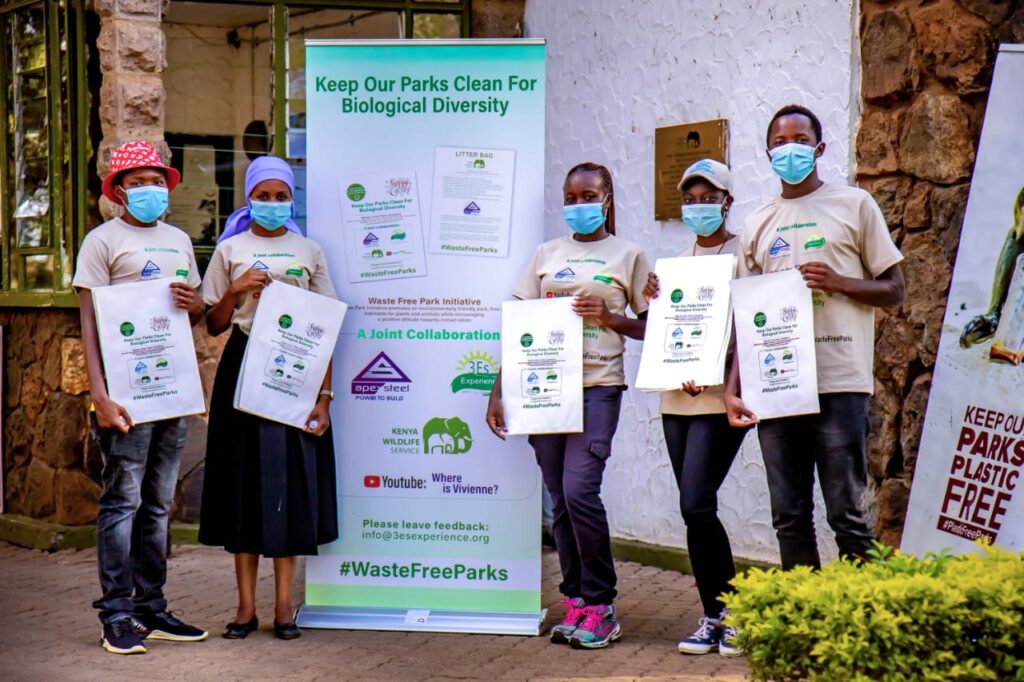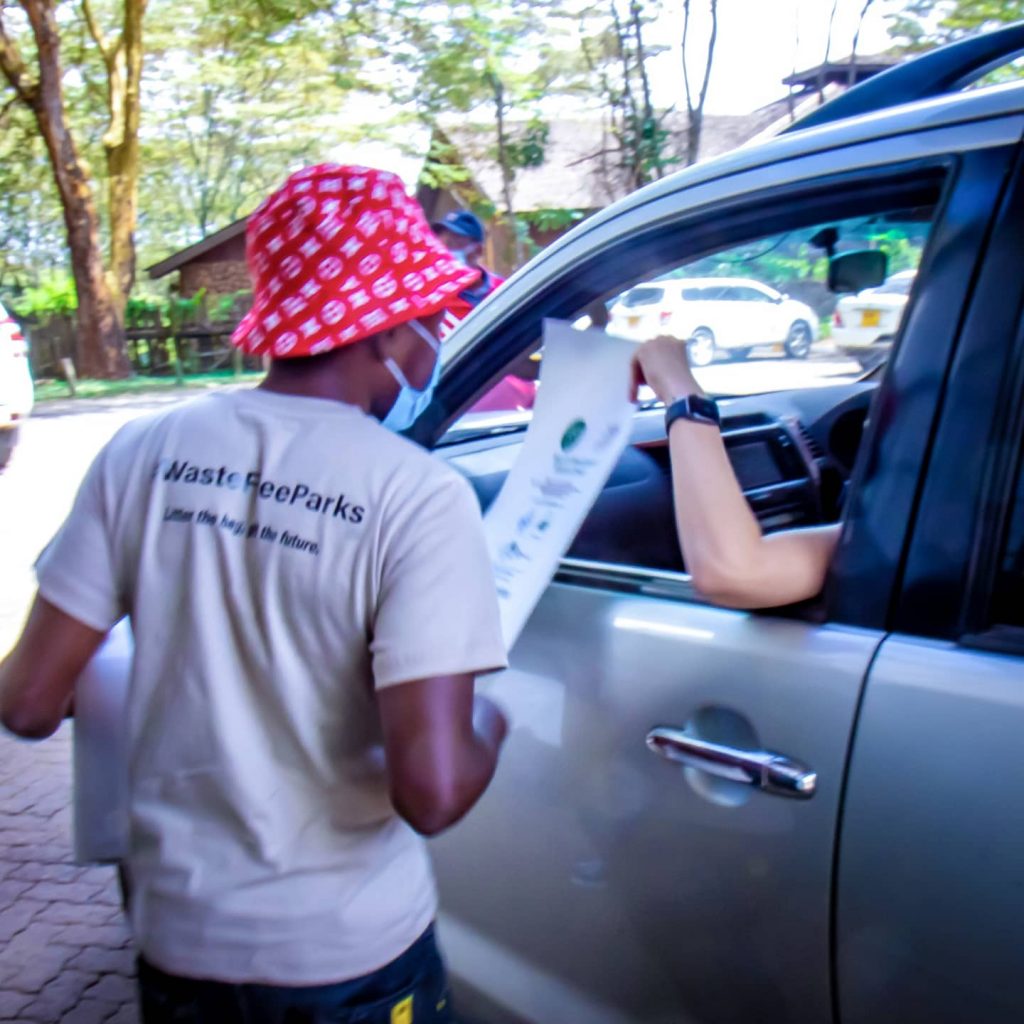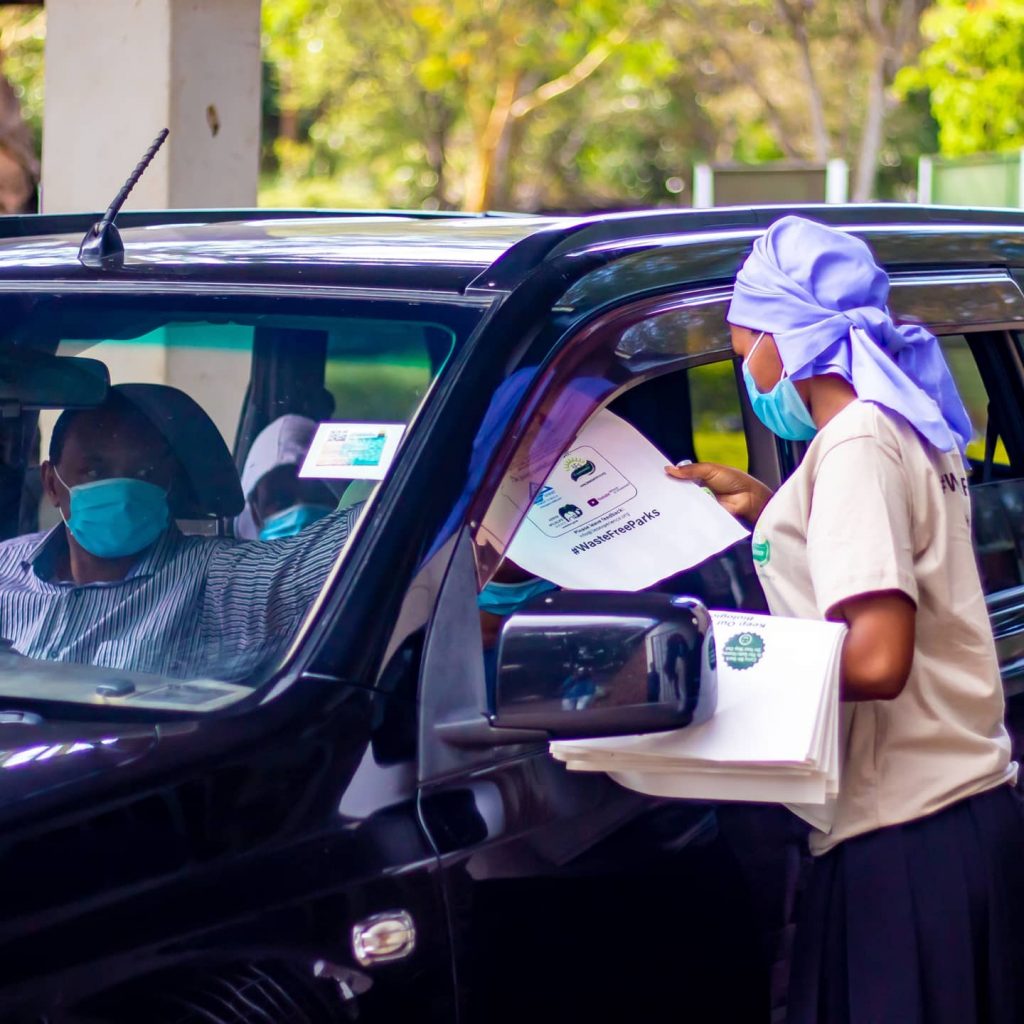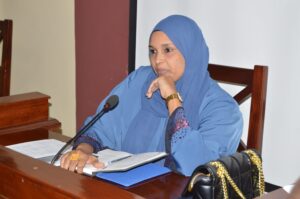3Es Experience: 20,000 tourists sensitized over waste free park campaign

A new waste free park campaign is seeking to eliminate single use plastics in the national parks by issuing eco-friendly waste disposal bags
This is following a government’s directive that outlawed single use plastics in protected like National Parks, beaches, forests and conservation areas a move that is yet to be fully enforced.
A sport check at the Nairobi National Park shows that visitors still continue to carry plastic water bottles, cups, disposable plates, cutlery, or straws into the protected areas.
In a bid to mop up plastics at the world famous animal sanctuary, 3EsExperience led an initiative to reach out to 20,000 people over the Easter holidays
Miss Vivienne Kemboi, the Director of 3Es Experience Organisation says that issuing litter bags to tourists has significantly reduced the disposals in the park.

“The litter bags help to improve the cleanliness of the park’s environments especially ensuring no littering of non-biodegradable waste within park. Through strategic partnerships and collaborations we intend to scale up the initiative to other parks such as Tsavo, Lake Nakuru, Amboseli and Maasai Mara,” said Miss Kemboi.
3Es Experience in collaboration with Apex Steel Ltd, Kenya Wildlife Service and YouTube channel: Where is Vivienne?, held the three-day Waste Free Park Initiative at the Nairobi National Park this Easter weekend from Friday 1st April through to Sunday 4th April.
The Waste Free Park initiative is aimed at environmental conservation and wildlife protection of the Nairobi National Park ecosystem.
Last year 50,000 people were sensitized over plastic waste disposal in the protected areas
Visitors to the park used the biodegradable bags issued to collect their litter — mainly water, food and snacks packaging used while inside the park– and disposed of it in litter bins and recycle stations at the entrance, or with some carrying them home to dispose of responsibly.
Through this, non-biodegradable plastic waste that are threat to the park ecosystem are discarded from the park.

Environmental pollution through use of non-disposable waste is a global menace. Stakeholders at continental stage have developed practical solutions and policies to mitigate the diverse effects on terrestrial ecosystem.
In Kenya the government banned the Single Use Plastic in a move to conserve the environment. However, enforcement of the policy in the public spaces is still a giant challenge.
“In order to reach all the 59 national parks and reserves, we are calling for other like-minded partners to join this noble initiative to make this planet better. This will not only keep our environment safe for survival, but boost the capacity and capability of our parks as source foreign income,” said Miss Kemboi.
The litter bags were distributed to over 2500 tourist both private and tour vehicles. Over 12000 visitors and the general public have been sensitized on matters related to Environmental Conservation and Wildlife protection.
Plastic pollution is one of the most serious threats to the planet’s health. Single-use plastics are polluting the majority of ecosystems from rainforests to the world’s deepest ocean trench. When consumed by fish and livestock, plastic waste ends up in our food chain.
By 2050, the UN estimates that there will be more plastic than fish in the ocean, unless governments and the private sector promote more resource-efficient design, production, use and sound management of plastics throughout their life cycle.





